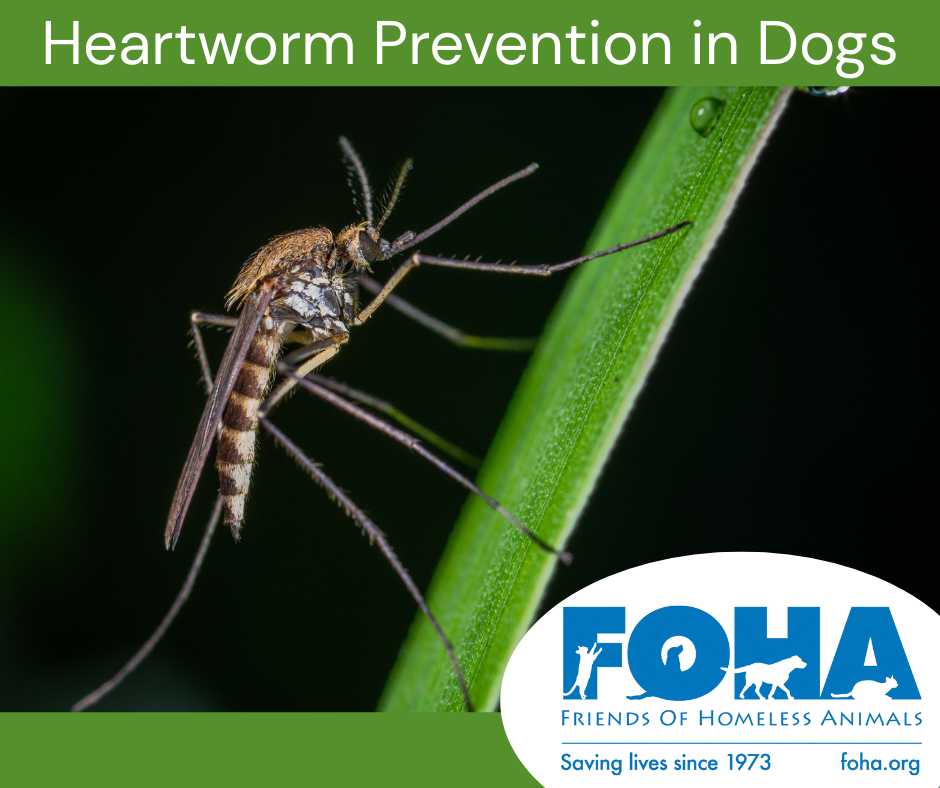
For dog lovers, there’s nothing like spending time with man’s best friend. Dogs are known for their loyalty, faithfulness, and unconditional love. We want happy, healthy lives for our dogs, and a positive test result for heartworms can be heart-breaking. Happily, they can be treated.
Mosquito bites are the culprits with heartworm disease. It’s caused by foot-long worms that live in a pet’s heart, lungs, and associated blood vessels, and results in severe lung disease, heart failure, and damage to other organs. Dogs accustomed to going outside are at a higher risk, because of the likelihood of encountering other wild animals carrying heartworm. Coyotes and foxes live close to urban areas and are considered carriers of the disease.
Few dogs show symptoms in the early stages. However, the longer the infection persists, the more likely that symptoms will develop. Some signs include a mild but persistent cough, an aversion to exercise, and exhaustion after moderate activity. As the diseases progresses, many dogs develop heart failure.
Treating Heartworm-Positive Dogs
- First, confirm the diagnosis. Your veterinarian should run more than one test to be sure that treatment is necessary.
- Restrict exercise. Physical exertion increases the rate at which heartworms cause damage.
- Stabilize the disease. Before treatment can begin, your dog’s condition needs to be stabilized with appropriate therapy.
- Administer treatment. Once the vet determines your dog is stable and ready for treatment, he or she can begin a multi-step treatment plan.
- Test for success. About six months after treatment is completed, another test will be needed to confirm that all heartworms are gone. You’ll want to administer prevention year-round for the rest of your dog’s life.
Testing positive for heartworm isn’t a death sentence for your dog. Proactive prevention is your best strategy. Being alert will insure plenty of future snuggles with your pet.



